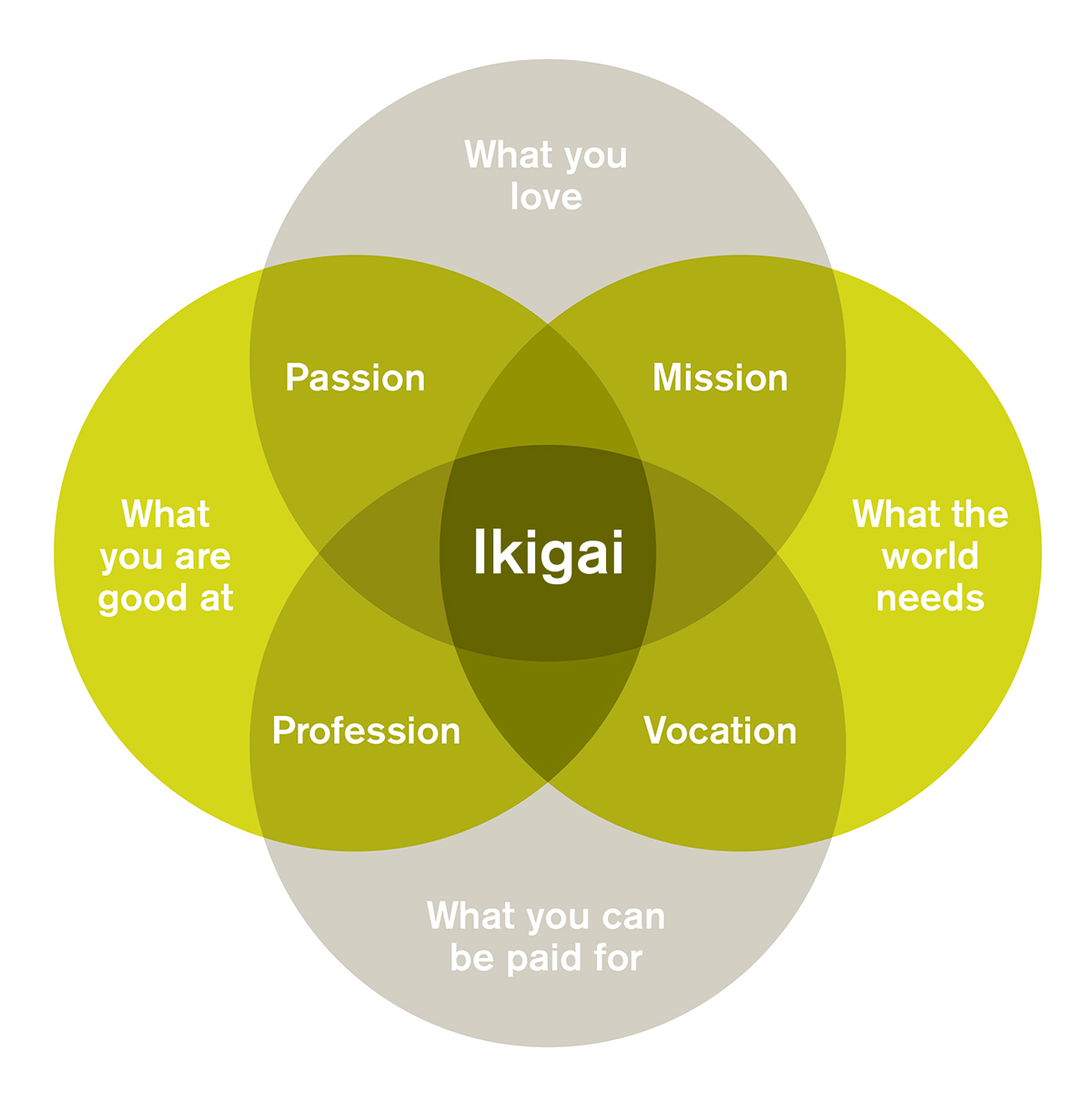Sydney
Level 6, 11 – 31 York Street
Sydney NSW 2000 Australia

Ikigai is a Japanese concept to do with work, passion and purpose. It’s one of those words that doesn’t quite translate into English, but the meaning behind it is profound and important to living a life you can be happy and proud of.
Ikigai is the thing that makes your life worth living. It’s the thing that makes you get out of bed in the morning, your reason for being.
The beautiful thing about ikigai is that it’s entirely different for everyone, and specific to your life, values and beliefs. When you find and actively pursue your ikigai, you bring more ease into your life.
For happiness and contentment, your ikigai should be linked to the work you do every day.
But how do you figure out what this means for you?
Make a list of the things you love, the things you enjoy doing and are good at. Then, consider what items on your list might align with what people need, and things that people value. Are there items or vocations on this list you can be paid for?
Use this picture to help you with your list, and to check where items might overlap.
Ikigai is a Japanese concept to do with work, passion and purpose. It’s one of those words that doesn’t quite translate into English, but the meaning behind it is profound and important to living a life you can be happy and proud of.
Ikigai is the thing that makes your life worth living. It’s the thing that makes you get out of bed in the morning, your reason for being.
The beautiful thing about ikigai is that it’s entirely different for everyone, and specific to your life, values and beliefs. When you find and actively pursue your ikigai, you bring more ease into your life.
For happiness and contentment, your ikigai should be linked to the work you do every day.
But how do you figure out what this means for you?
Make a list of the things you love, the things you enjoy doing and are good at. Then, consider what items on your list might align with what people need, and things that people value. Are there items or vocations on this list you can be paid for?
Use this picture to help you with your list, and to check where items might overlap.

If you’ve finished university, your ikigai could be linked to an area of specialty within your industry. For IT graduates, it could be data science, machine learning, AI, app development or even helping people through the service desk.
Once you’ve determined what your ikigai is, you can use it to help set career goals and plan your next moves when it comes to job hunting or career progression. Align your ikigai to where you want to be, who you want to be spending time with, and work that you enjoy. If you’re just starting your career, think about the type of business you want to work for, the workplace culture you want to be part of, and the day-to-day activities you’ll be doing.
Finding a role and organisation that supports your ikigai means you’ll be excited to go to work every day. Or if you’re busy sending job applications, it will help you to come across as genuinely passionate about the position you’re applying for, which can help you score an interview!
It doesn’t matter where you are, if you start empowering yourself through considering your ikigai, you’ll be more likely to achieve your goals, and have a career you can be proud of.
by Jessica Hutchinson